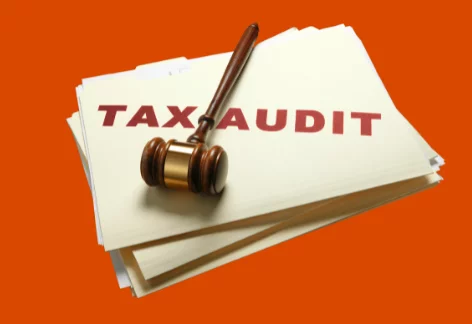No one likes an audit. And no one likes the IRS. So, it shouldn’t be a surprise that combining the two usually results in a terrifying combination. But before you freak out about your notice of an upcoming audit, you should know that it’s nowhere near as bad as you might expect. Most IRS audit triggers are tame and basic – some back-to-back mail asking fundamental questions about a simple discrepancy, math error, or miscommunication. IRS employees are just ordinary people tasked with doing a job, and all they want is a little cooperation. IRS audit triggers will always be a minor inconvenience at best and a small fine for an innocent mistake at worst.
Attention-Grabbing IRS Audit Triggers
The IRS is tasked with minimizing the tax gap, the difference between the amount of tax the government estimates that it should receive each year and the amount of tax it receives. Part of reconciling these two numbers and minimizing that gap involves utilizing algorithms to scour incoming tax returns and sort them for signs of an inconsistency – such as a difference in income reported between an information return and a tax return.
Whenever the system throws up an inconsistency, a human comes to check it out. The IRS corrects the mistake (especially if it was something simple, like rounding down too often or making a math mistake) and sends you the bill. If it’s something that warrants further investigation, the IRS may commit to an “audit.” Aside from computer-detected discrepancies, the IRS also conducts random selection audits from tax returns that deviate from the statistical norm.
In this case, you didn’t make any mistakes, but your return didn’t quite match up with those of other people with similar tax profiles. Then, there are related examinations, where the IRS will contact and audit you concerning a more extensive investigation of your business partners, clients, or investors. It’s hardly as serious as it sounds. IRS audits go one of two ways. They usually prefer the first: correspondence audits, which are conducted entirely via mail and phone, and the rarer in-person audits, when the IRS comes by to check your books or talk to you (office audits and field audits).
How IRS Audit Triggers Work
If the IRS determines that something is off about your tax account, or if they have a few questions they would like you to clear up, they will first contact you via mail to notify you of the audit. From there, the audit will continue via mail (correspondence audit) or an in-person interview at the IRS’s nearest office (office audit) or your place of business/home (field audit).
In-person audits are self-explanatory – the IRS will show up, ask a few questions, and will want to review some financial information. Use the time between the notice and the interview to prepare your records and get everything ready and at hand to answer any questions. If the audit is a simple correspondence audit, the IRS will be upfront about what information they are looking for.
Here are a few examples of what the IRS might ask you to provide, either in paper form or as a digital record:
- Receipts
- Bills
- Canceled checks
- Legal papers (divorce settlements, property acquisition, etc.)
- Loan and lease agreements
- Travel logs
- Travel tickets
- Medical records
- Dental records
- Theft/loss-related documents (insurance reports, police reports, photos of the damage/theft)
- And more
You can learn more about what you should expect from an IRS audit through the IRS examiner’s handbook on Audit Technique Guides (ATGs). These are written per industry. Note that the IRS can ask you to provide records dating back three years (more if it’s a substantial error).
Should You Be Worried?
In most cases, no. As long as you keep your records for the last three years and are relatively organized, you shouldn’t have anything to worry about. It may cost you some time to get everything ready, but it probably won’t cost you any money. As long as you can communicate that you had no criminal intent when you made your mistake, your audit will be a relatively painless process.
If it is a minor discrepancy, it might be covered by any tax credits or tax refund you might have been due. In the worst-case scenario, the IRS might fine you if it’s a more significant issue – such as high underreporting income. And as always, it helps to be aware of your rights as a taxpayer. If you need to appeal the decision the IRS made after your audit, consider hiring a tax professional to represent you for your best chance at overturning their decision.
Targets of IRS Audit Triggers
In general, IRS audits are selected mainly by a computer. Knowing what the computer looks for can help you avoid audits in the future. Here’s what you need to know:
Tax Return Discrepancies
Tax discrepancies are the most common reason the IRS might select your tax account for an audit. Minimizing discrepancies by utilizing professional tax preparation services can save you the costs and trouble of an audit in the future.
Missing Information Returns
A business or individual that forgot to file a Form W-2, 1098, or 1099 might warrant an investigation by the IRS, even if it’s just to remind you to file your missing returns. While the IRS has the power to file substitute returns in your name, these aren’t necessarily accurate, nor are they charitable. The IRS needs the information provided by those returns to be accurate in their ability to track discrepancies and identify tax problems. Note that there are also fines and penalties for failing to file a return on time.
Suspicious Deductions
Suppose you deduct 100 percent of all vehicle costs as business-related. The IRS will want to make sure that you are using your car only to drive around on official business, without a trip here or there to the supermarket or the pickup of the kids or head off on vacation. Any deductions deemed unusual or too suspiciously favorable (in your favor, of course) might get flagged, especially if they stand out too much among your peers.
Random Selection
Aside from discrepancies, the IRS might randomly select returns outside of the norm, even if they aren’t necessarily made in error. In these cases, it’s usually enough to send the IRS a proof of purchase to explain a significant deduction, receipts for renovation costs to prove your new home office, etc.
Tax Fraud Investigations
There are rare cases where the IRS may approach an audit more vigorously than usual. In these cases, they may be investigating criminal behavior. The IRS may investigate your tax account as part of an investigation into a potential tax crime – even if you had nothing to do with it. Consider seeking professional representation and cooperate freely.
However, you have very little to fear. The IRS does not initiate audits nearly as much as it used to, even if the numbers slowly trend up.

